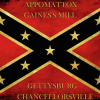When he first ran for statewide political office in Colorado, Republican gubernatorial candidate Walker Stapleton touted his “proud family tradition of community leadership,” which included the “great” accomplishments of Benjamin Stapleton, his great-grandfather who was a former Mayor of Denver and a leader of the Ku Klux Klan.
But now, about nine years later, it’s hard to find Walker Stapleton saying anything about Benjamin Stapleton, much less praising his “public service.”
Benjamin Stapleton was a high-ranking member of the KKK when he was first elected Mayor of Denver in 1923, during which time the KKK had elected a handful of members and allies to government offices. The following year, while fighting a recall election, Mayor Stapleton pledged to “work with the Klan and for the Klan in the coming election, heart and soul,” and said he’d “give the Klan the kind of administration it wants.”
In an ad for his successful 2010 campaign for Colorado treasurer, Walker Stapleton bragged about his great-grandfather’s legacy as “Denver’s longest-serving mayor” and praised his “accomplishments,” which included the construction of parks as well as Stapleton Airfield, Colorado’s first municipal airport.
“I’m really proud of my family’s public service here in Colorado and beyond,” said Stapleton.
Stapleton also touted his family’s record of “public service” during multiple 2009 radio interviews, including on KNUS’ Backbone America with John Andrews, in which he said his great-grandfather did “a lot of great things” for Colorado:
“My great-grandfather was the longest serving mayor of Denver,” Stapleton said. “Built Stapleton Airport, which was a little more convenient than our current airport. Built Red Rocks. Built the entire Denver park system. Built Denver’s first Civic Center. So I obviously wasn’t around when he was around, but he did a lot of great things for the state.”
In a 2009 article in the Cortez Journal, Stapleton even implied that his “mixed political blood,” a reference to his great-grandfather’s Democratic party affiliation, would help him work with both parties.
Stapleton also made sure to mention his family’s political roots in Colorado on his first campaign website, StapletonForColorado.com, which was up during his first run for state treasurer.
“Walker Stapleton’s roots run deep in Colorado,” the website read, according to a Wayback Web Archive capture of the former website in 2009. “The Stapletons have been leaders in the Denver area for decades, and Walker continues a proud family tradition of community leadership.”
Look at Stapleton’s gubernatorial campaign website now, which can still be found at StapletonForColorado.com, and you will find no references to his family’s political roots.
In fact, after his first election to the treasurer’s office and during his current campaign for governor, you’d be hard-pressed to find any instance of Stapleton touting his great-grandfather’s legacy or his family’s history of political influence in Colorado.
And while Stapleton has stopped talking about his great-grandfather, he has still not apologized for his family’s involvement with the Klan. In fact, it appears he has not addressed the issue at all.
The narrative shift in Stapleton’s campaign messaging on his family’s political legacy isn’t lost on former Republican gubernatorial candidate Steve Barlock, who earlier this month accused Stapleton of donating to the History Colorado museum in exchange for removing references to his great-grandfather from its exhibit of the KKK in Colorado.
“Only when his family’s past gives him an advantage will he claim them, and he’ll deny everything if they give him a disadvantage,” Barlock told the Colorado Times Recorder. “The truth should always come out. If they’re now so worried about that history, then maybe there’s something more.”
As the Colorado Times Recorder previously reported, History Colorado removed all references to former Denver Mayor Benjamin Stapleton from its KKK display that explains the white supremacist group’s political influence in Denver. The changes were apparently made around 2012, when the museum moved into their new building and when yearly donations from Walker Stapleton’s family’s foundation to the museum quadrupled.
The Stapleton campaign still hasn’t responded to that story, nor did they respond to a request for comment on this story.



